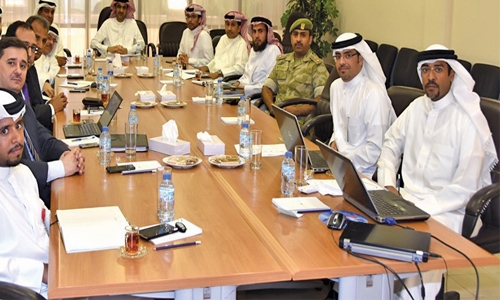Radio Amateur regulation gets Spectrum Committee approval
Manama: The Spectrum Strategy Coordination Committee yesterday announced in a statement that it has given nod to the Radio Amateur Licensing regulation provided by the Wireless Licensing, Frequency and Monitoring Directorate. Approval was also given to the frequency ranges distributed for this service.
The regulation, according to the committee, aims at refining skills of radio amateur with the purpose of sending and receiving messages from and to the other internationally licensed Amateur stations. The regulation will allow the amateur licensees to rebuild their stations so as to provide support on specific emergency cases.
The committee was holding its third meeting chaired by Chairman and Information & eGovernment Authority Chief Executive Mohammed Ali AlQaed at the Authority’s Isa Town premises. The meeting was attended by committee members who represent 10 governmental entities and institutions.
Besides, approval was also given to allocate 790 – 862 Megahertz range of mobile broadband services for 4G (LTE) technologies. This is in addition to the frequency spectrum range 2.6 Gigahertz which was formerly allocated for the same application, the committee said in a statement.
During the meeting, AlQaed explained that the committee aims at simplifying the process of coordinating the frequency spectrum requirements through setting a well-defined strategy together with technical and organizational policies.
The Chief Executive also stressed on the committee’s constant pursuit in supporting the usability of technologies that rely more on the spectrum’s efficiency – with its keenness on fulfilling the international requirements, obligations and agreements.
Discussions also focused on the results of the Frequencies National Plan procedures based on the outcomes of the World Radiocommunication Conference in 2015 as well as in response to the 4th National Telecommunications Plan.
Related Posts

